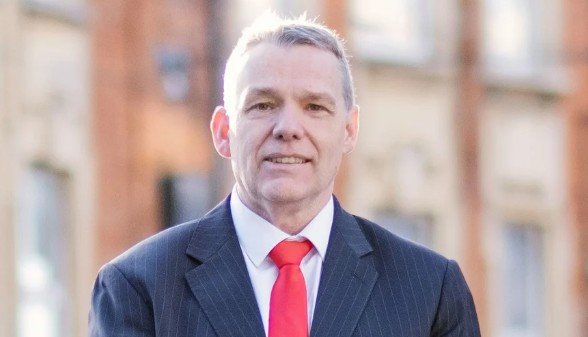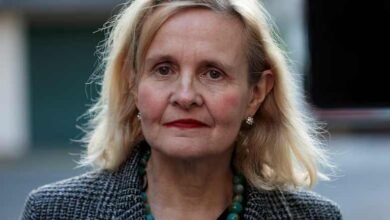Darren Rodwell: A Force in Local Government and London’s Regeneration

Darren Rodwell is one of the most recognisable figures in London’s local politics, known for his outspoken nature, bold leadership style, and transformative work in Barking and Dagenham. Over more than a decade, he helped shape the future of East London’s development while gaining both admiration and controversy. His journey from a working-class background to council leader, and later to a national political stage, tells a compelling story of ambition, regeneration, and resilience.
Early Life and Background
Born in 1970 at Barking Hospital, Darren Rodwell was raised in a modest family. His father worked in logistics and his mother in the care sector. Growing up in social housing, he understood early the challenges faced by ordinary Londoners. Leaving school at sixteen, Rodwell did not initially follow an academic path, yet he found confidence in community work and local activism.
In his twenties, he battled severe health issues, including a spinal injury and tumours, which strengthened his perspective on life and service. These personal struggles later became part of the narrative that shaped his commitment to public welfare and resilience against adversity.
Beginning of Political Life
Rodwell’s political awareness grew through local activism. He became the chair of the Reede Road Tenants and Residents’ Association, advocating for housing rights and community welfare. His involvement in grassroots initiatives soon turned into a deeper political calling. He joined the Labour Party in the mid-2000s when the far-right British National Party began gaining ground in Barking and Dagenham. That moment served as a wake-up call to Rodwell and others who felt the borough’s working-class voters had been ignored.
He ran for council office with the belief that Labour could regain the trust of residents by being present, visible, and focused on real issues such as affordable housing, local jobs, and public safety.
Rise to Council Leadership
In 2010, Darren Rodwell was elected as councillor for Alibon Ward. Labour swept all 51 council seats, reclaiming dominance in a borough once shaken by far-right populism. His organisational skills and charismatic presence quickly earned him recognition within the local Labour ranks.
By 2014, he became the Leader of Barking and Dagenham Council. His leadership was marked by bold decision-making and an entrepreneurial mindset. He rejected the idea of simply managing austerity and instead pushed for growth, regeneration, and self-reliance within the council’s structures.
Vision and Regeneration Strategy
Under Rodwell’s leadership, Barking and Dagenham underwent one of the most ambitious regeneration drives in London. His vision was to create a borough that could house more people, attract business investment, and provide opportunities for its residents.
He often described his mission as “putting Barking and Dagenham back on the map.” He launched major housing projects through the council’s development company and collaborated with private investors to turn neglected land into thriving residential zones. His administration aimed to build tens of thousands of affordable homes, new schools, and better public spaces.
Beyond physical transformation, Rodwell promoted cultural renewal. He pushed for community programmes, creative hubs, and a stronger identity for local people. His “one borough” approach aimed to reduce divides between different communities and ensure that development benefited long-term residents as well as newcomers.
Achievements
One of Rodwell’s major accomplishments was creating the local development company that allowed the council to lead its own regeneration efforts rather than rely solely on private developers. This innovative model became an example for other boroughs seeking to combine public accountability with commercial efficiency.
During his tenure, unemployment rates dropped, education outcomes improved, and the borough gained a more positive reputation for growth potential. He was credited for promoting Barking and Dagenham as a place of opportunity rather than decline.
Politically, Labour maintained complete control of the council under his leadership. In the 2022 local elections, Labour again won every single seat, reflecting a remarkable consolidation of power.
Leadership Style
Darren Rodwell’s leadership style has often been described as dynamic, passionate, and unfiltered. He was known for his ability to speak directly with residents and communicate complex ideas in a relatable way. Many found his honesty refreshing, while others saw it as too blunt or confrontational.
He built strong partnerships across sectors, working closely with housing developers, community organisations, and central government representatives. His visibility at public events and conferences made him a well-known figure not only in East London but across the capital’s political landscape.
However, his strong personality also led to disagreements. Some within Labour considered him too pragmatic or too close to business interests. Others argued that the concentration of power around him reduced accountability, especially as the council had no opposition councillors.
Controversies and Challenges
Rodwell’s career has not been without turbulence. In 2022, he faced criticism for a comment he made during a Black History Month event, describing himself as having “the worst tan possible for a Black man.” Though intended as humour, it sparked backlash and was deemed racially insensitive. He apologised publicly, calling it “an embarrassing mistake.”
A more serious challenge emerged in 2024 when a woman accused him of inappropriate behaviour during a public event. Rodwell denied the allegation completely, saying he had no memory of meeting the individual and describing the claim as false and politically motivated. The Labour Party investigated the complaint, and it was later dismissed. Nonetheless, the episode damaged his parliamentary ambitions and drew national media attention.
Following the controversy, he withdrew as Labour’s parliamentary candidate for Barking, citing his desire to protect his family from unnecessary stress and avoid distraction from the campaign.
Departure and New Roles
After stepping down from his council leadership in 2024, Darren Rodwell transitioned to advisory and consultancy roles. He joined several boards and think tanks, focusing on housing and regeneration policy. He became a senior associate at a local government consultancy and was later appointed Chair of the Harlow Growth Board in 2025. These positions allowed him to continue influencing policy on a regional scale.
Even after leaving the council, his legacy remained visible across Barking and Dagenham. The borough’s skyline, housing schemes, and community infrastructure all reflected the direction he had set in motion.
Personality and Public Image
Rodwell’s personality has long been central to his political identity. He speaks with conviction, often combining humour with plain language. His background allows him to connect with working-class voters who see him as authentic and down-to-earth.
However, his outspoken nature has sometimes led to polarisation. Critics view him as brash, while supporters call him fearless. He thrives on challenge and is unafraid to confront media scrutiny or political opponents directly.
Political Significance
Within Labour, Darren Rodwell represented a strand of leadership that emphasised results over rhetoric. His approach to regeneration blended social policy with economic realism. He believed local government should not simply manage decline but actively drive growth.
At the same time, his career highlights tensions within modern Labour politics: between local independence and national discipline, between business engagement and ideological purity, and between authenticity and caution in communication.
Lessons and Legacy
Darren Rodwell’s story offers several lessons for local leadership. He demonstrated that a borough once written off as struggling could reinvent itself through confidence, vision, and strategic investment. His boldness inspired both admiration and resistance, but no one could ignore his impact.
His critics warn that his style also showed the dangers of unchecked power and the need for transparency in leadership. For supporters, he proved that passion and persistence could turn ambitious plans into real achievements.
In Barking and Dagenham, the effects of his tenure are tangible—thousands of new homes, stronger community engagement, and a renewed sense of local pride. The challenge for his successors will be maintaining this momentum while ensuring greater accountability and inclusiveness.
Conclusion
Darren Rodwell remains a fascinating figure in modern British politics. From his humble beginnings in East London to his years as council leader, he left a deep mark on the landscape and spirit of Barking and Dagenham. His blend of working-class authenticity, sharp political instincts, and ambitious regeneration projects made him one of the most influential local leaders in the capital.
While his career has seen controversy and criticism, his achievements in reshaping his borough are undeniable. The story of Darren Rodwell is a study in ambition, resilience, and the complexities of leadership in an age where visibility and scrutiny go hand in hand. His name will continue to resonate wherever the conversation turns to urban renewal, local government reform, and the power of personality in public service.



